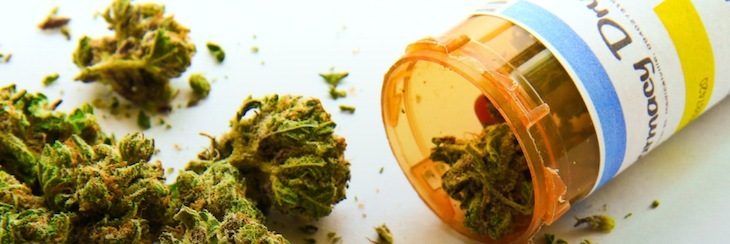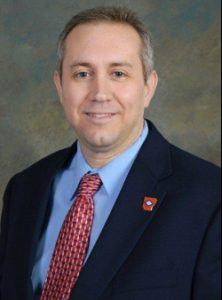Medical marijuana could lower opioid abuse, says Arkansas lawmaker who opposed legalization
by July 24, 2017 8:06 pm 1,436 views

Pharmacist and Arkansas Rep. Justin Boyd, R-Fort Smith, said his views are “changing slightly” on medical marijuana. While Boyd did not support calls for the legalization of the substance during the 2016 general election, his research into other markets has caused him to be hopeful.
Boyd elaborated from the Bartlett Community Room of the Fort Smith Police Department at a recent Employers’ Health Coalition forum covering the U.S. opioid crisis.
“My view of medical marijuana is changing slightly. I’m trusting but verifying,” Boyd told audience members. “I’ve visited with some people. I’ve seen how it’s been set up, and there is an opportunity — the one bright spot in my view, if I can find one — is that it may actually help reduce opioids.”
When one audience member asked about specific studies, Boyd said, “When you say study, as a pharmacist, I think double-blind, placebo control. But there is data that suggests that in Colorado opioids are abused less and part of the reason is because marijuana is readily available. Other places where medical marijuana is available, opioid use tends to be lowered. I don’t know that we have causation, but to me that is one of the potential bright spots.”
Some of the “bright spot” data includes a study recently published in JAMA Internal Medicine showing states with legalized marijuana had lower rates of fatal opioid overdose. According to the study, researchers compared medical marijuana laws and death certificate data in all 50 states from 1999-2010. Only 13 states during the reporting period had medical marijuana laws in place. The number of fatal opioid overdoses were significantly lower in these states, with approximately 1,700 fewer opiate-related overdose deaths in 2010 alone.
“We found there was about a 25% lower rate of prescription painkiller overdose deaths on average after implementation of a medical marijuana law,” wrote Dr. Marcus Bachhuber, lead author of the study. In Arkansas, there were 384 fatal drug overdoses last year; 279 (or close to 73%) were ruled as “unintentional.”

Medical marijuana laws have also been attributed to a reduction in prescription medication use in Medicare Part D. A University of Georgia study published by Health Affairs in July 2016 used data on all prescriptions filled by Medicare Part D enrollees from 2010-2013 and found that once a medical marijuana law was implemented, use of prescription drugs for which marijuana could serve as a clinical alternative fell significantly.
“National overall reductions in Medicare program and enrollee spending when states implemented medical marijuana laws were estimated to be $165.2 million per year in 2013,” the study’s authors wrote.
Boyd said, to him, the data suggests that “as we open the door to medical marijuana, our opioid use might drop. … I don’t think we know the answer to that, and I’m not saying we know the answer to that. I’m saying I’m hopeful that that could be one positive thing that comes out of it.”
THE OPIOID EPIDEMIC
The Centers for Disease Control have ruled opioid abuse as a full-scale epidemic, accounting for 16,000 deaths and 475,000 emergency room visits each year. Annually, opiate overdose kills more people than car accidents.
In 2016, Arkansas doctors prescribed 235.934 million opioid pills out of a total 338.981 million pills prescribed. That’s about 79 opioid pills per person in a state of just 3 million people. According to the Arkansas Department of Human Services, the state ranks eighth in the nation for prescriptions of opioid pain relievers.
Hydrocodone is the most frequently prescribed opioid with 1.691 million prescriptions in 2016, followed by Tramadol (770,322), Alprazolam (690,386), Oxycodone (652,912), and Zolpidem (552,912).
